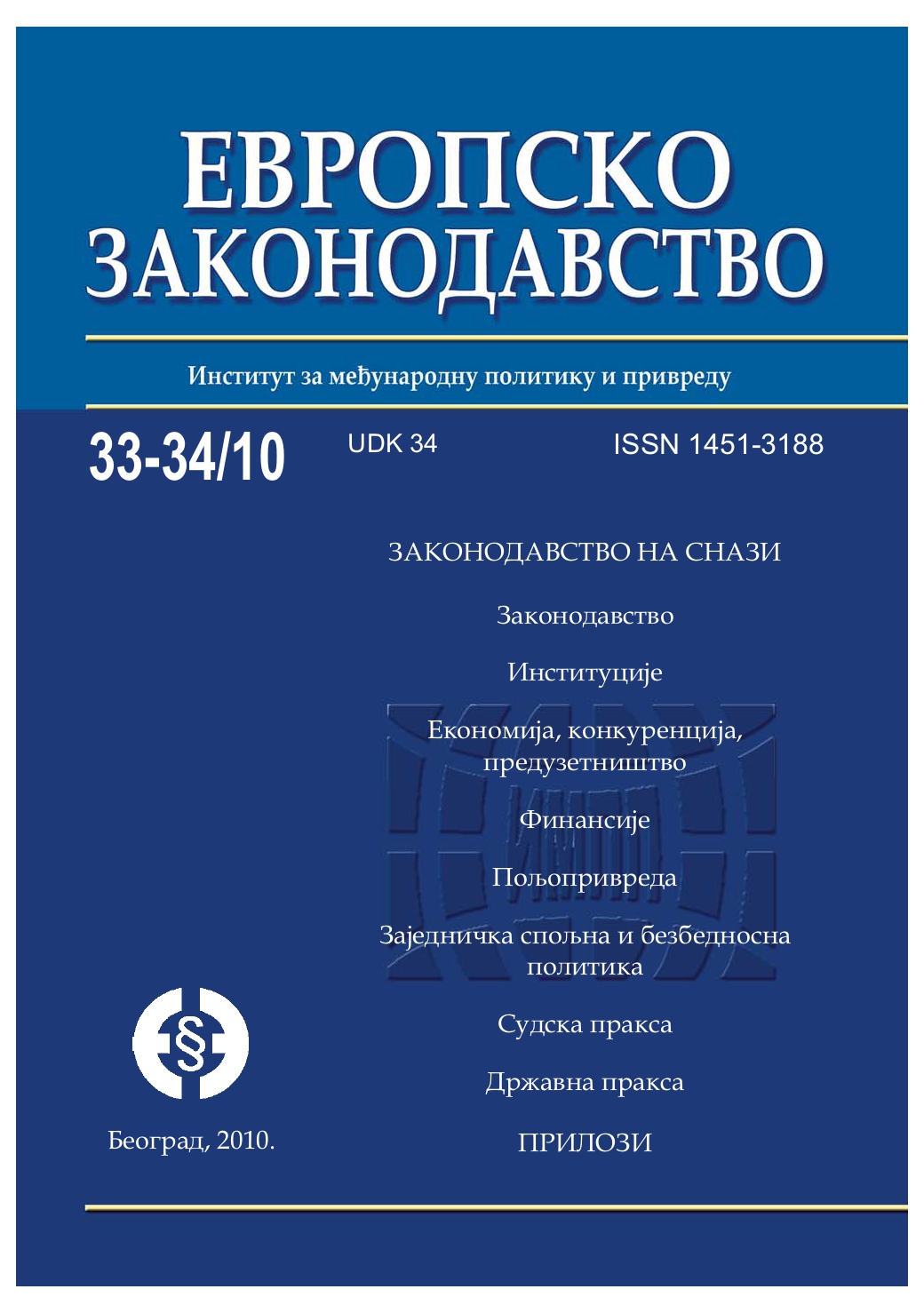Сарадња у области правосуђа и унутрашњих послова на основу Уговора из Лисабона
Cooperation in the field of justice and home affairs on the basis of the Treaty of Lisbon
Author(s): Jelena Ćeranić PerišićSubject(s): EU-Legislation
Published by: Институт за међународну политику и привреду
Keywords: Lisbon Treaty;European Union;area of freedom;security and justice;co-operation in the field of justice and home affairs;Treaty on Functioning of European Union
Summary/Abstract: The paper analyses the cooperation in the fields of Justice and Home affairs in the European Union. The Lisbon Treaty introduces a number of significant innovations in these fields. Firstly, the EU has finally been recognised as an international organisation with its own legal status, an apparently technical novelty that could nevertheless contribute significantly to its credibility as a global actor. Furthermore, the Lisbon Treaty has done away with the existing three-pillar structure, with the result that in the future the entire contents of the Treaty establishing the European Community on the Area of Freedom, Security and Justice will be subject to the control of the Court of Justice of the European Communities in Luxembourg. Second, under the terms of the Lisbon Treaty, the ordinary legislative procedure only requires a qualified majority in Council and co-decision with the European Parliament for issues such as the right of asylum, border management and control, visas, immigration, and the like. Nevertheless, unanimity is still necessary for sensitive issues such as passports, identity cards, family law with cross-border implications, and police cooperation. Third, regulations, directives, decisions and opinions are used as a legal acts in the Area of Freedom, Security and Justice. Fourth, according to the Lisbon Treaty the role of the national parliaments is strengthened especially as regards monitoring of respect for the principle of subsidiary. Fifth, in order to fight against the terrorism and organised crimes the possibility to establish the European Public Prosecutor’s Office is envisaged. Finally, it is important to highlight the creation of a Standing Committee on Internal Security within the Council.
Journal: Европско законодавство
- Issue Year: 2010
- Issue No: 33-34
- Page Range: 9-18
- Page Count: 10
- Language: Serbian

